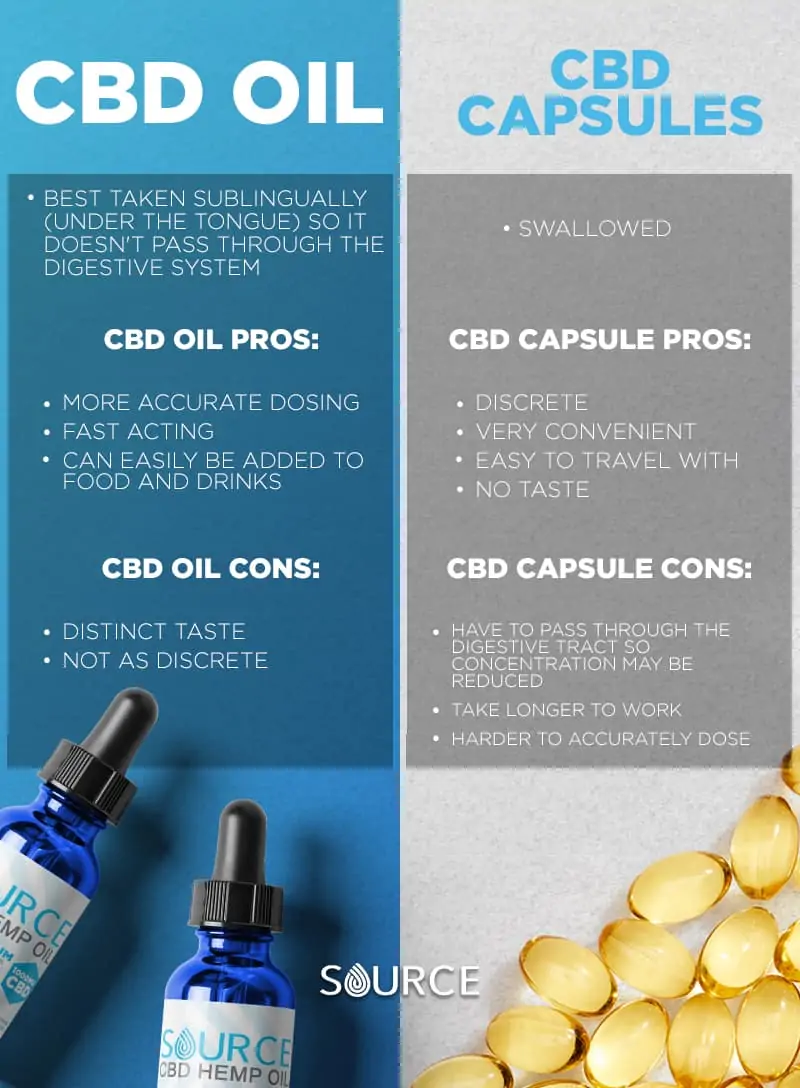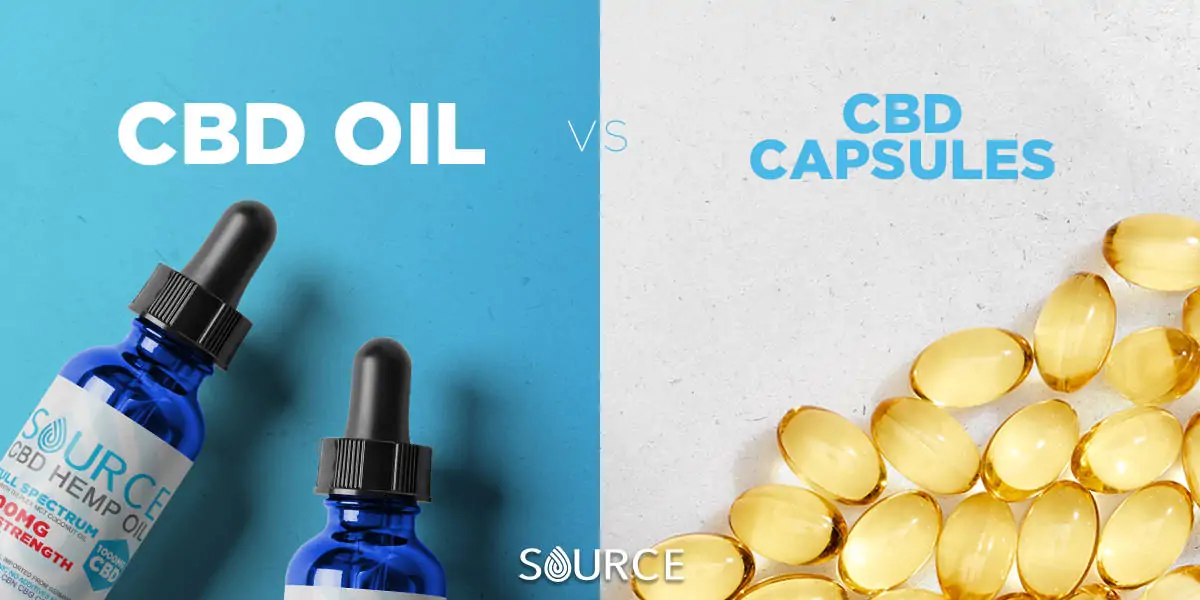CBD Oil News
CBD Capsules vs. Oil: The Pros & Cons of Both
The CBD revolution is in full swing. It has been for months now. And as more and more people around the globe learn about the potential benefits of CBD oil, we find ourselves being asked questions about use all the time.
One of the most common questions we get is about CBD capsules vs. oil… we received an email about this just the other day in fact – so we thought it best to take the discussion to the blog.
What are CBD Capsules vs. Oil?
Both CBD capsules and CBD oil are forms of, well, cannabinoid (CBD) oil. That’s not confusing at all…
CBD oil is a natural, non-intoxicating oil, typically infused in a carrier, that comes form the cannabis plant. It’s one of the many different cannabinoids found in the cannabis plant. Tetrahydrocannabinol (THC) is another one you’ve probably heard of. THC is the cannabinoid that makes people feel “high.”
Most CBD on the market today comes from hemp, which is one of the 2 main species of the cannabis plant (the other is marijuana). The hemp plant naturally contains a higher CBD to THC ratio than the marijuana plant. The THC count is usually very low (>.3%).
CBD oil is just a tincture, usually in a bottle with a graduated dropper.
CBD capsules are CBD oil in a capsule format, just like a vitamin or pharmaceutical substance.
Pros & Cons
Both CBD capsules and a CBD tinctures offer unique benefits – and there are pros and cons to each one.
Let’s work through the list.
1. Dosing
One of the biggest differences with CBD capsules vs. oil is dosing.
With a CBD capsule, you buy a bottle of capsules with a predetermined dose. Now, if you know your perfect dose, and the capsules are offered in that exact dose, you’re good to go. The thing is, you’re kind of stuck with that dose.
In contrast, droppers allow you to decide how much you want to take with every dose. If you don’t notice an effect after a little while, you can increase your dose the next time. Conversely, if you feel like you need a little less, no problem, you can reduce the tincture amount without buying a new bottle. This allows you to experiment until you find the right amount for you. And this is especially crucial if you’re just starting out.
In our research, we’ve found that the best results come from accurate dosing with millilitre markings on a scientific grade, graduated dropper. This method gives you the ability to accurately dose or customize your dose to the correct MG, and adjust it accordingly.
2. Absorption
When you take CBD oil in tincture form sublingually (under the tongue), it will start to work in as little as 20 minutes. With a capsule, it will take approximately 30-45 minutes longer (or more) to enter the system as the capsule has to be broken down in the stomach before any oil can be transferred throughout the body.
The benefit of taking the oil sublingually is that it gives your body the ability to immediately begin to absorb and use the CBD as opposed to waiting for a capsule to dissolve. This way it is absorbed through liposomes in your mouth as well as your internal organs.

3. Taste
Let’s face it, CBD oil has a very distinct taste. Some people enjoy it, but more seem not to. It’s very natural and earthy – it is, after all, straight from a plant.
When you take a tincture, unless it has added flavoring, there’s not much you can do about the taste. Of course, it’s only going to be a bother for a few seconds.
One thing people love about capsules is that taste is not an issue. You take the capsule with some water or juice and there’s no taste.
4. Convenience
This one’s fairly simple. What’s more convenient – a tincture with a dropper, or a bottle of capsules you just pop out and take?
Sure, it isn’t a huge difference, but some prefer capsules to oil for this reason.
And while most of us may not be traveling much these days, another con of CBD oil tinctures is that they don’t travel super well. For example, if you take a CBD oil in your carry-on luggage, you may get additional questions about its contents (even though it is legal), whereas you probably wan’t have the same experience with capsules.
CBD Capsules vs. Oil: Is One Better than the Other?
So, CBD capsules vs. oil? There are clearly pros and cons to both CBD oil and CBD capsules, so in the end, which one is better?
In our experience, CBD oil in tincture form, taken sublingually, delivers more. It is faster acting, and more of the beneficial cannabinoids get to where they need to be. With capsules, you just can’t get around the fact that your body needs to first break down the capsule and then digest the contents.

